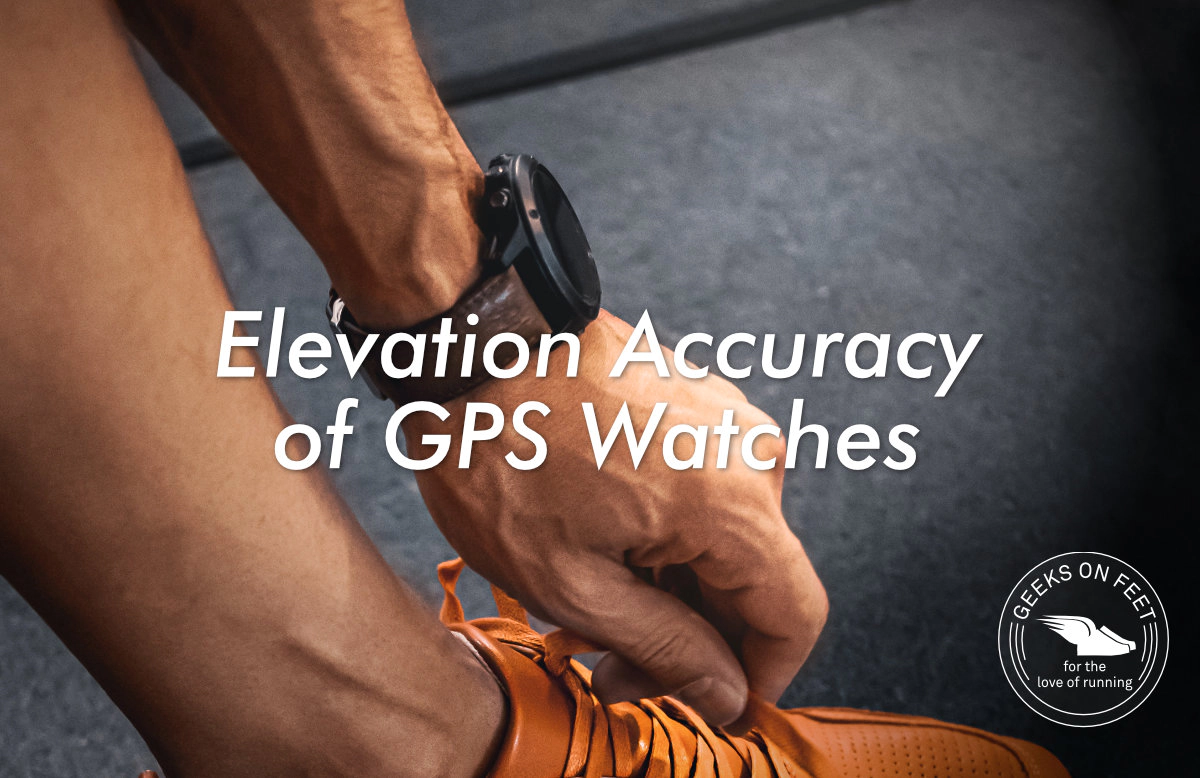
Training for elevation is an essential aspect of preparation, particularly if you are training for a course that involves a significant elevation change. GPS watches have become a popular tool among athletes and fitness enthusiasts alike to track elevation during their runs. While these devices have been widely embraced, there is always the question of how accurate they truly are?!
How GPS watches track Elevation?
Elevation can be tracked primarily using two methods
When GPS data is cross-referenced to a database, the GPS receiver compares the satellite signal with known positions of fixed points on the earth’s surface. The watch then calculates the elevation by comparing it with the known points. This method is not very accurate and often has an error of a few meters.
Another method is using barometric data measured by smartwatches. Barometric altimeter sensors measure atmospheric pressure changes to calculate elevation. The sensor converts atmospheric pressure measurements into an elevation reading by assuming a constant rate of change in atmospheric pressure with altitude. This method is more accurate than GPS. However, this method can be sensitive to changes in weather conditions. Also calibration is necessary to maintain accuracy.
Comparing the Elevation Accuracy
Recent Stadium run was held in Bengaluru in March 2023 is an excellent choice to measure the accuracy. The track in Kanteerava stadium where the event is held is flat, and elevation gain should be ideally zero meters for each loop.
We have looked at the Strava data of 46 runners who ran the 2-hour relay event. Below are the distribution of watches worn by runners during the event. Given the run is for two hours, most runners have run 50 laps and more, we do expect minor elevation gain to the point of 10m or so.
Here is the list of watches, and if they use a Barometric Altimeter Sensor.
Watches with barometric altimeter sensors are supposed to show better elevation. But when we looked through the data the findings were interesting. While we are expecting very little variation among the watches, there is a significant difference between how the watches reported the data. Please see the chart below which compares avg elevation gain in meters for each of the watches.
Key insights from the data
How to improve Elevation accuracy?
If you are using a Garmin watch with a barometric altimeter, periodically calibrate the watch. It is easy to do and the information can be found in respective support pages. Check the modes of recording, this might impact various parameters measured. For example, most Garmin watches have 3 distinct modes to record elevation using barometric altimeters. Regular clearing of sensor port is also important.
How to Calibrate Barometric Altimeter for Garmin Smartwatches (ja-gps.com.au)
Please let us know your experience & observations.

Rameshbabu is member of Mangalore Runners Club, and is coached by Runners360. He has been running for 10 years, and has run half marathons across the world. He aspires to run a marathon soon.